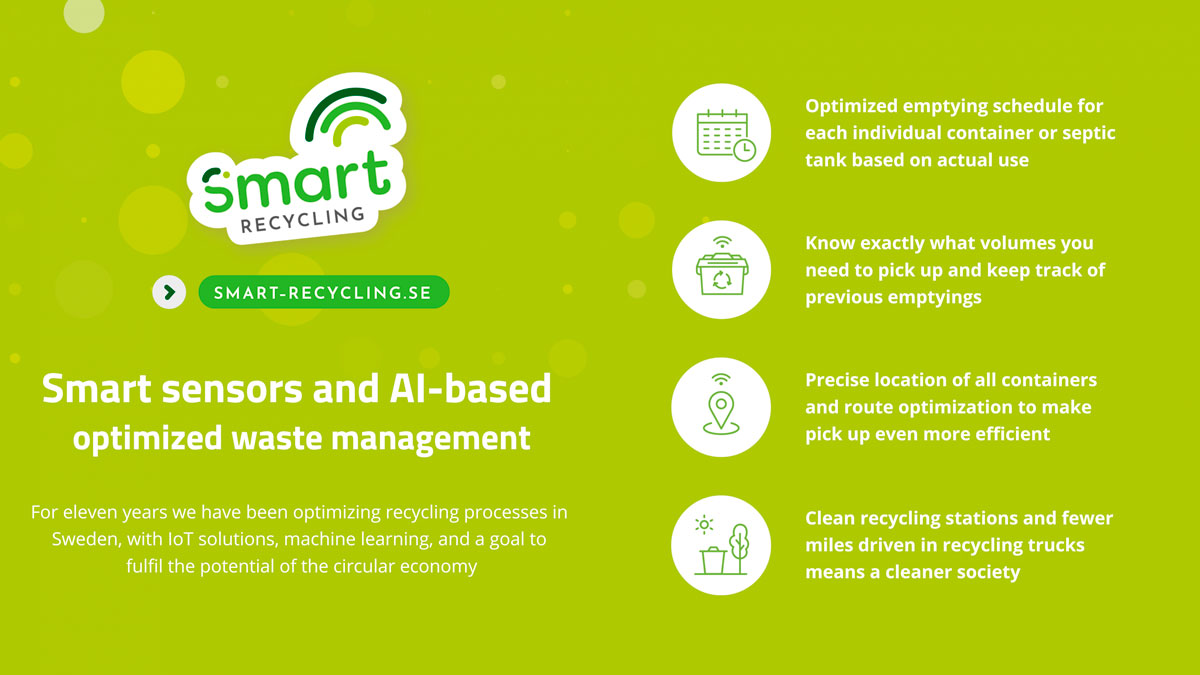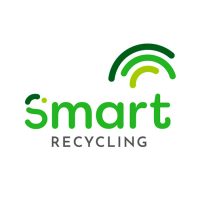Smart Recycling
Smart Recycling believes that fulfilling the potential of the circular economy is the best way for a society to tackle environmental challenges.
Often, people and businesses are very concerned with what they put into the circular economy – i.e., how much they recycle – and how much they take out of the circular economy, such as how much recycled material they use to create their products. But perhaps it is more important to focus on what happens between the input and the output? How effective one is at handling recycling, and the logistics of recycled goods, will be crucial. If recycling does not function as smoothly as possible in the near future, the circular economy might add to the problem, rather than solve it.
The key to solving a problem has always been information, and unless you have people standing by at each container at every recycling station there is no way of knowing what actually needs to be done. Having drivers and trucks going around emptying recycling containers by schedule means that you are compromising with efficiency. In Sweden, this meant that an average container was only half-full when it was emptied, so in reality, the companies in charge of emptying the containers drove their big diesel-powered trucks twice as much as they actually needed, and in the end nearly a quarter of all containers were still overfilled before they were emptied.
Smart Recycling knows they can help the environment and help the customer. They have been doing it for over ten years, and despite the solution not being free, the customers still save money as a result.
That’s Smart Recycling.

